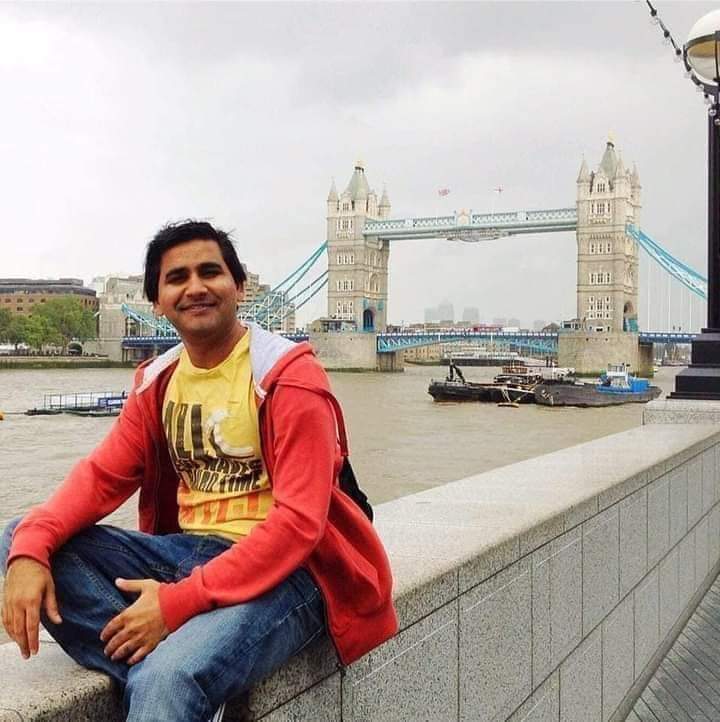
Feudal system is deeply rooted in Sindh and has devoured its masses
Shoukat Lohar
The brutal murder of Dr. Ajmal Sawand in broad daylight due to a tribal clash in Sindh has shaken the entire nation.
Dr. Sawand was an Assistant Professor at the IBA University Sukkur, and his murder is a tragic reminder of the deep-rooted social and cultural issues prevalent in the country that need to be addressed urgently.
The incident highlights the vulnerability of the educated and enlightened individuals in the country who are working to bring about positive change in society. Dr. Sawand was a highly qualified and respected academic who dedicated his life to educating the youth and empowering them to become agents of change in their communities. His murder is a loss not only for his family but also for the entire academic community.
The tribal clashes that led to Dr. Sawand’s murder are a manifestation of the larger issue of tribalism and feudalism that plagues the country. The feudal system is deeply entrenched in the rural areas of Sindh, where powerful landlords exercise complete control over the lives of their tenants. The feudal lords are known to settle their disputes through violent means, and the innocent civilians often become the victims of their power games.
The government needs to take concrete steps to strengthen the rule of law and ensure that justice is served
The root cause of these tribal conflicts is the lack of education and awareness among the masses. The feudal lords are able to maintain their hold on power by keeping the people uneducated and unaware of their rights. The absence of rule of law and a weak judicial system also exacerbate the situation, as the perpetrators of crimes are rarely held accountable for their actions.
The murder of Dr. Sawand has sparked widespread outrage and condemnation from all segments of society. The government has promised to bring the perpetrators of the crime to justice, but this is easier said than done. The feudal lords and their henchmen are known to have strong political connections, and they often use their influence to evade justice.
To address this issue, the government needs to take concrete steps to strengthen the rule of law and ensure that justice is served. The judicial system needs to be reformed to make it more efficient and transparent, and the police force needs to be strengthened to ensure that they can effectively investigate and prosecute crimes. The government also needs to invest in education and awareness campaigns to empower the people and enable them to stand up for their rights.
The judicial system needs to be reformed to make it more efficient and transparent
In addition to these structural reforms, there is also a need for a change in societal attitudes towards tribalism and feudalism. The people need to be educated on the negative impact of these practices on society, and the values of equality, justice, and human rights need to be promoted. The media can play a crucial role in this regard by highlighting the issue and bringing it to the forefront of public discourse.
The murder of Dr. Sawand is a tragic reminder of the work that still needs to be done to build a just and equitable society in Pakistan. The government, civil society, and the public at large need to come together to address the root causes of tribalism and feudalism and work towards building a society where every citizen has the opportunity to live a life of dignity and respect.
Background of feudalism
Feudalism was a social and economic system that emerged in medieval Europe in the 9th and 10th centuries, and lasted until the 15th century. It was characterized by a hierarchical society in which a lord granted land, called a fief, to a vassal in exchange for loyalty, military service, and other obligations.
Causes
Invasions and instability: The fall of the Roman Empire in the 5th century AD led to political instability and invasions by various groups, including Vikings and Magyars. As a result, people turned to local lords for protection, leading to the rise of feudalism. Decentralization of power: With the decline of central authority, power shifted to local lords who controlled the land and the people who worked on it. Agricultural developments: Technological advances in agriculture increased productivity, leading to surpluses that could be used to support a ruling class.
Consequences
Social hierarchy: Feudalism established a strict social hierarchy, with the king at the top, followed by lords, vassals, knights, and peasants. This hierarchy determined social status and relationships between people.
Economic system: The feudal system created a hierarchical economic system, in which land and labor were the main sources of wealth. Landowners extracted surplus from the labor of their tenants and serfs.
Military obligation: The feudal system created a military obligation, with lords and vassals providing soldiers and knights to protect the land and to fight in wars. Lack of mobility: The feudal system limited social mobility, with people being born into their class and having limited opportunities to move up.
Decline
The feudal system declined with the rise of centralized monarchies and the growth of urban centers, which weakened the power of the nobility and created new economic opportunities.
But it still deeply rooted in Sindh and now and it has devoured its masses.
In conclusion, the murder of Dr. Ajmal Sawand is a heinous crime that must be strongly condemned. It is a stark reminder of the deep-seated social and cultural issues prevalent in the country that need urgent attention. The government needs to take concrete steps to strengthen the rule of law, invest in education and awareness campaigns, and work towards changing societal attitudes towards tribalism and feudalism.
It is only through such collective efforts that we can hope to build a just and equitable society where the rights of every citizen are respected and protected.
__________________
 Shoukat Lohar is Assistant professor in English at Mehran University of Engineering and Technology Jamshoro. He can be reached at Shoukat.ali@faculty.muet.edu.pk
Shoukat Lohar is Assistant professor in English at Mehran University of Engineering and Technology Jamshoro. He can be reached at Shoukat.ali@faculty.muet.edu.pk